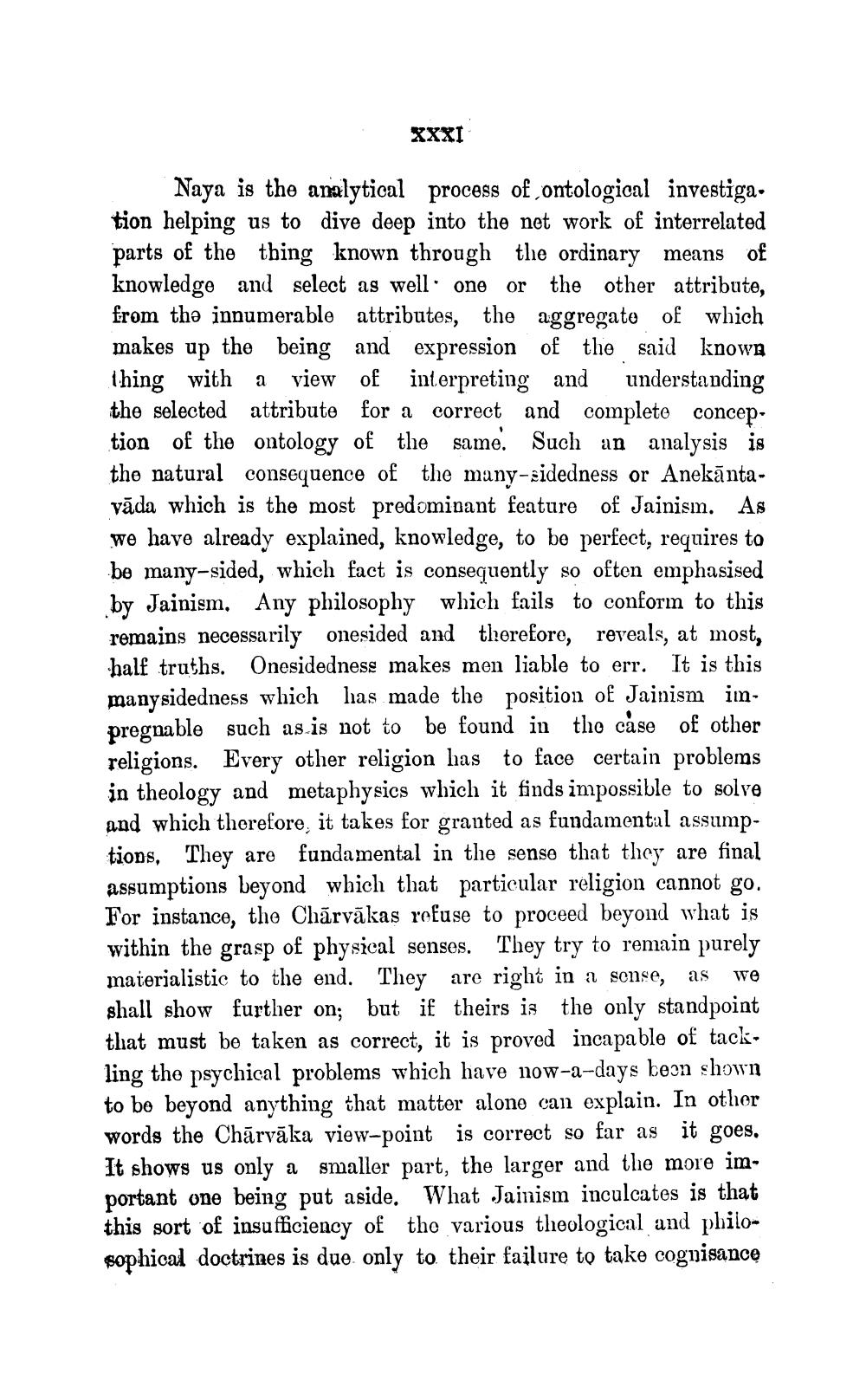________________
H
XXXI
Naya is the analytical process of ontological investiga. tion helping us to dive deep into the net work of interrelated parts of the thing known through the ordinary means of knowledge and select as well: one or the other attribute, from the innumerable attributes, the aggregate of which makes up the being and expression of the said known Thing with a view of interpreting and understanding the selected attribute for a correct and complete conception of the ontology of the same. Such an analysis is the natural consequence of the many-sidedness or Anekāntavāda which is the most predominant feature of Jainism. As we have already explained, knowledge, to be perfect, requires to be many-sided, which fact is consequently so often emphasised by Jainism. Any philosophy which fails to conform to this remains necessarily onesided and therefore, reveals, at most, half truths. Onesidedness makes men liable to err. It is this manysidedness which has made the position of Jainism inpregnable such as is not to be found in the case of other religions. Every other religion has to face certain problemas in theology and metaphysics which it finds impossible to solve and which therefore, it takes for granted as fundamental assumptions. They are fundamental in the sense that they are final assumptions beyond which that particular religion cannot go. For instance, the Chārvākas refuse to proceed beyond what is within the grasp of physical senses. They try to remain purely materialistic to the end. They are right in a sense, as we shall show further on; but if theirs is the only standpoint that must be taken as correct, it is proved incapable of tackling the psychical problems which have now-a-days been shown to be beyond anything that matter alone can explain. In other words the Chārvāka view-point is correct so far as it goes. It shows us only a smaller part, the larger and the more important one being put aside. What Jainism inculcates is that this sort of insufficiency of the various theological and philosophical doctrines is due only to their failure to take cognisance




